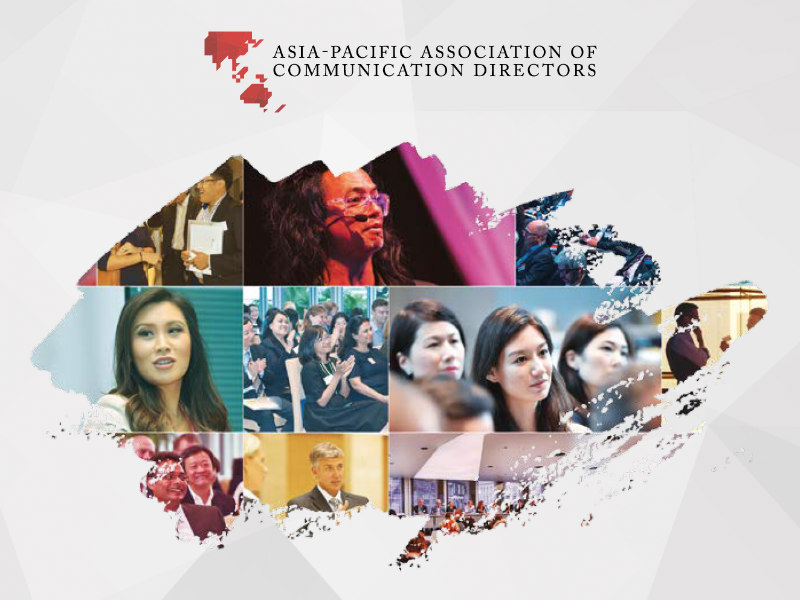APACD/NTU Roundtable: Comms Leaders Explore Future Of The Discipline
28th November 2019
A senior APACD discussion finds several challenges that the communications profession must address at a time of significant change.

What are the challenges that senior in-house communicators must address at a time of significant change? This was the foremost topic on the minds of Asia-Pacific Association of Communication Directors (APACD) members that took part in a roundtable discussion on ‘The Future of the Chief Communication Officer’ at the Wee Kim Wee School of Communication and Information (WKWSCI) at Nanyang Technological University (NTU) in Singapore last week.
The discussion followed the Future of the CCO research project, that was led earlier this year by NTU in conjunction with Watatawa, WE and the Holmes Report.
Participants at last week’s roundtable included:
Ferdinand de Bakker, lecturer at WKWSCI
Amanda Huan, NTU researcher
Keith Morrison, Director, Marketing Strategy, Black & Veatch
Sajin Varghese, APACMed
Helen Wailes, Communications & Public Relations, Asia-Pacific, Boston Scientific
Hwee Suan Ong, Director, Communications, Experia Events
Arnab Choudhury, Global Communications Lead, Standard Chartered Bank
Michelle Medeiros, Head of Communications, Asia-Pacific, Roche Diagnostics
Shruti Bose, Communications Leader, Asia-Pacific, Roche Diagnostics
along with five WKWSCI graduate students.
The Future of the CCO project intended to better understand the emerging opportunities, issues and threats faced by top communication professionals in the ever-changing business landscape. These include the increasing need for CEOs to have access to top-level communication counsel; concerns about the communication strategies and skills of CEOs themselves; tasks being taken over by other departments; and a trend showing corporate communication being subsumed under marketing.
Fifty communication professionals from around the world were interviewed for the project. De Bakker provided further context surrounding the development of the project and remarked that it was borne out of increasing concerns over the perceived ambiguity of the importance of the communication professional in organisations.
Perceptions & value
Remarking on the trend of communication being subsumed by marketing, one participant noted that the turn to marketing has been influenced by the metrics used to measure communication efforts. These metrics, such as click-through rate, and open-rate, have been used as proxy indicators of ‘successful’ communication when they are instead indicators of marketing efforts. Another participant remarked that communicators within organisations also have a tough time arguing against the marketing narrative. Communication departments are still viewed as ‘cost centres’ and when most budgets are held by the chief marketing officer, there lies a tendency to want to appeal to the marketing aspect to obtain funding.
The less-than-ideal perception of the communication profession is also not helped by the presence of public relations or communication agencies that have largely played an ‘implementer’ role (e.g. carrying out events, arranging media conferences, etc.) rather than a consultative role. “Agencies have not been able to convince clients of their value” said one participant, as she recounted her experience in having to handhold her appointed agency through communications strategy discussions.
The discussion then turned to how communicators could better communicate the necessity and impact of their work on businesses. There was an overall consensus that this would require tying the communication back to its business value – how does communication impact the business? This will require a thorough understanding of the business to know what the appropriate measures for communicative success would be.
Agency concerns
As much as the participants lamented the state of affairs, there was recognition that the onus is on comms professionals themselves to move the discipline forward. Companies tend to appoint PR agencies that rely on archaic metrics which are not linked back to business value. This leads to a “blind leading the blind” phenomenon, remarked one participant; there is no push for communication efforts to be more appropriately assessed.
This kind of low-level thinking towards impact measurement has seeped into other aspects of communication work. Agencies tend to possess an ‘execution’ mindset and there is little guidance for younger executives on the more strategic aspects of communication. One participant found it incredulous that even senior management of agencies were not able to think strategically.
Participants agreed that there were problems with the agency model. One participant remarked that the Singapore agency model is a product (or victim) of the business landscape in Singapore. He added that, for MNCs in Singapore, most strategic thinking is done back at HQ and the type of communication work left for the Singapore market is largely implemental in nature, hence the deficit of ‘strategic’ mindsets among local agencies.
Education & opportunities
Given the challenges of the profession and the business landscape, what role do communication courses and education play for comms professionals? Participants agreed that they serve multiple purposes. One, further education grows an individual’s mindset. Two, it demonstrates to others one’s capability and improves one’s credibility. But there is a need for education to be holistic; requiring breadth in knowledge in order for one to be a good communicator.
How else has the role of the communication professional changed? One participant likened the role of communicators within organisations to a mirror: they should reflect the organization back onto itself by simplifying and explaining what each part of the organization does.
On the future of corporate communication, participants talked about the following as major issues and opportunities. The first is the shift from CSR (Corporate Social Responsibility) to ESG (Environmental, Social, and Governance). The second concerns digital transformation and disruption. Third, stakeholder management with particular reference to diversity and inclusion issues. Fourth, culture transformation.
Reflecting on the discussion, participants left with one major question: do we, as communication professionals, have the mindset and skillset to navigate the great change?




